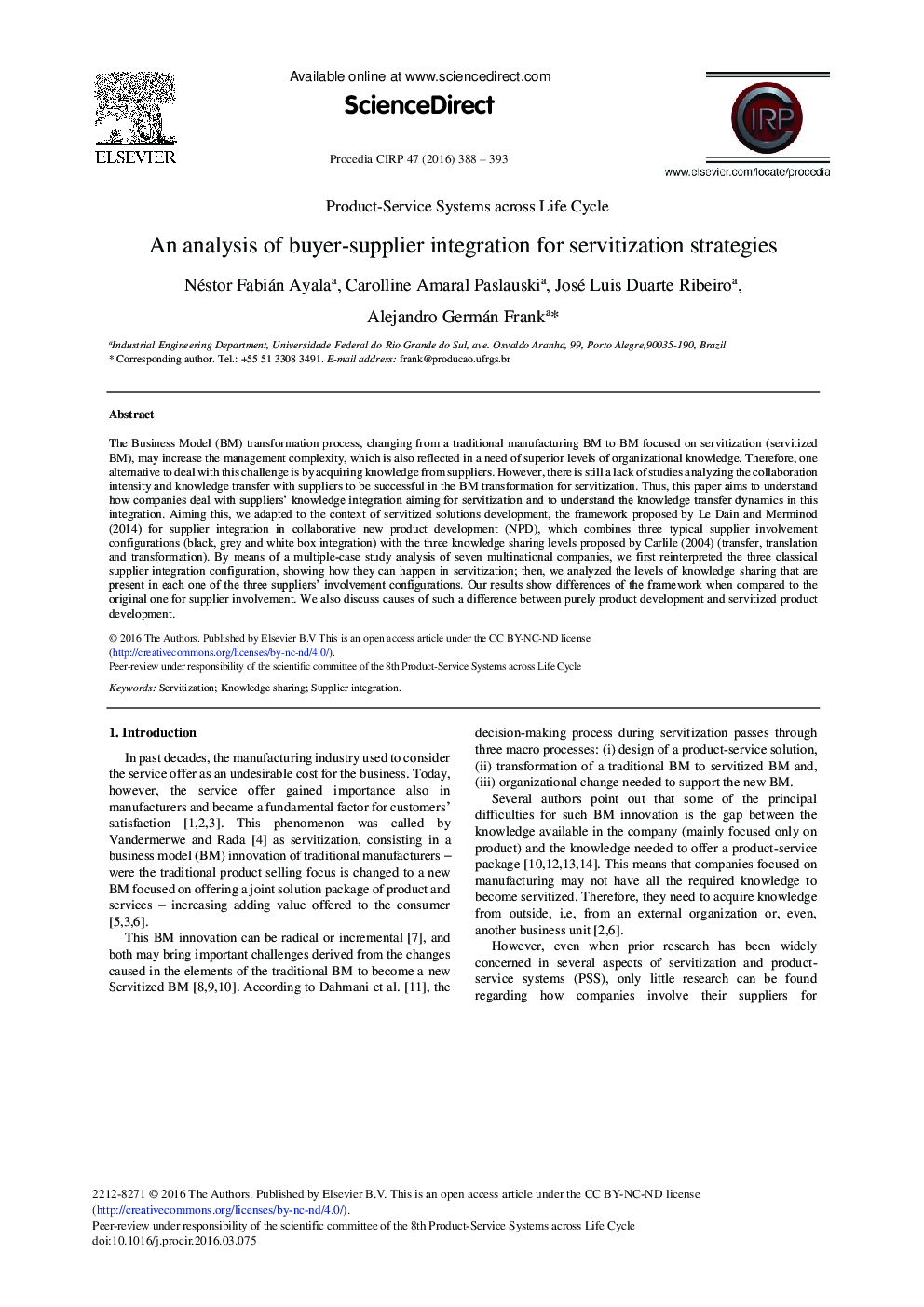| Article ID | Journal | Published Year | Pages | File Type |
|---|---|---|---|---|
| 1698328 | Procedia CIRP | 2016 | 6 Pages |
The Business Model (BM) transformation process, changing from a traditional manufacturing BM to BM focused on servitization (servitized BM), may increase the management complexity, which is also reflected in a need of superior levels of organizational knowledge. Therefore, one alternative to deal with this challenge is by acquiring knowledge from suppliers. However, there is still a lack of studies analyzing the collaboration intensity and knowledge transfer with suppliers to be successful in the BM transformation for servitization. Thus, this paper aims to understand how companies deal with suppliers’ knowledge integration aiming for servitization and to understand the knowledge transfer dynamics in this integration. Aiming this, we adapted to the context of servitized solutions development, the framework proposed by Le Dain and Merminod (2014) for supplier integration in collaborative new product development (NPD), which combines three typical supplier involvement configurations (black, grey and white box integration) with the three knowledge sharing levels proposed by Carlile (2004) (transfer, translation and transformation). By means of a multiple-case study analysis of seven multinational companies, we first reinterpreted the three classical supplier integration configuration, showing how they can happen in servitization; then, we analyzed the levels of knowledge sharing that are present in each one of the three suppliers’ involvement configurations. Our results show differences of the framework when compared to the original one for supplier involvement. We also discuss causes of such a difference between purely product development and servitized product development.
